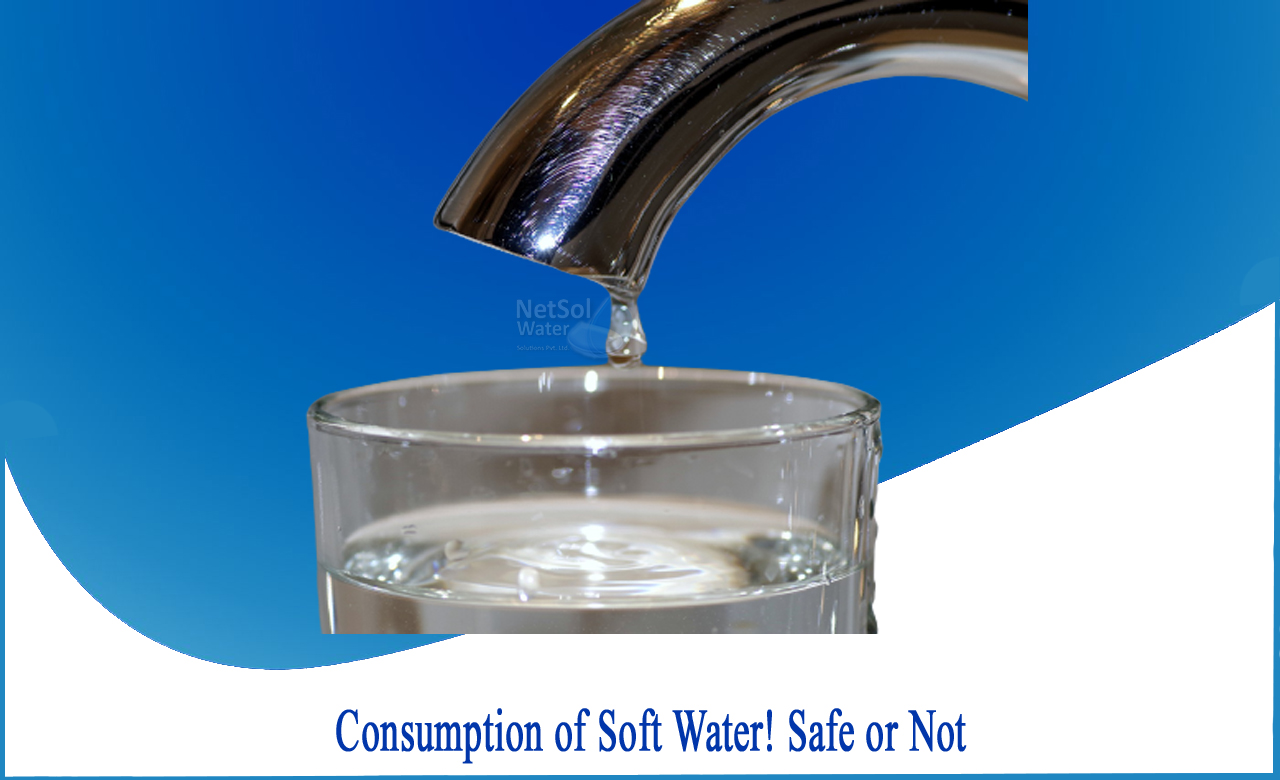Is Soft Water Safe to Drink?
Various concerns, concerning the safe consumption of drinking water have been expressed during the last 40 years, depending on the quantity of sodium present in water that has passed through a softening mechanism. However, no official decision has been issued stating that whether drinking softened water is harmful or safe to drink.
Most water softeners function by eliminating minerals found in hard water, such as magnesium and calcium, via an ion-exchange mechanism. Sodium is used in the water softening process. This is because salt is used to clean the resin that captures the undesirable minerals. In the ion-exchange process, a little amount of sodium is exchanged for magnesium and calcium. Softened water contains a trace quantity of sodium, generally known as salt.
The amount of salt in softened water is determined by your location and the hardness of your water. Because areas with very hard water require more salt to soften the water, thus softened water has a greater sodium content.
SIGNS OF HAVING SOFT WATER AT HOME:
1. Cleaner clothes with no mineral stains
2. Healthy Water Pressure
3. A slight sodium taste in drinking water, although this is often imperceptible
4. Shinier skin and healthier hair
IS IT BETTER TO DRINK SOFT WATER OVER HARD WATER?
Hard water users may seek to soften their water in a variety of ways, but soft water users will rarely try to harden their water supply. If you want mineral-rich water, you may need to relocate to an area with a well-developed groundwater system.
The fact that hard water is good for your health is one of the main reasons why some people enjoy it. Hard water can help you satisfy your daily calcium and magnesium requirements without the need for supplements or a change in your diet.
However, high mineral concentration can dry out your skin and hair, as well as throw off your skin's pH balance, making the compromise less worthwhile.
Soft water has several advantages, especially when it comes to cleaning your dishes and clothes. Soft water saves money on the water bill because homeowners only have to run their delicate champagne flutes through the dishwasher once to get them sparkling clear.
The following are some of the benefits of converting to a soft water system:
· Mineral accumulation in pipes is reduced.
· Clothes that last longer
· There will be no more soap scum.
· Hair that gleams (mineral-rich water can leave hair looking dull over time)
IS THERE ANY GOVERNMENT ADVICE ON DRINKING SOFT WATER?
There is no unified policy regarding the consumption of softened water. In most Indian states, sodium is simply listed as an indication parameter in national rules, and therefore has no bearing on whether hard or soft water is safe to drink. However, the recommended quantity of salt in drinking water is established at 200 mg/l for health reasons.
The salt levels of softened water will be well under suggested limits in most parts of India; but, in a few places of India where the drinking water is very hard, sodium levels may reach 220 mg/l, necessitating the installation of water softeners.
INSTALL A WATER SOFTENER!
Our customers' well-being and happiness are our top priorities!
NETSOL WATER has maintained one constant throughout its history: if our clients are concerned about something, we make it our concern as well.
While installing NETSOL water softener, we’ll make sure your softened water doesn't surpass 200 mg/l. Hard mineral ions are no longer present in the water that flows out of the resin tank of the water softener. Instead, the water is soft and contains very little sodium ion. From there, you may experience all the advantages of soft water, from more invigorating showers to delectable morning coffee.



